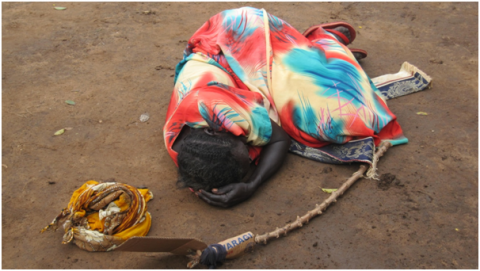
By Nyangoma Patience
When one hears about domestic violence, it seem to be brutality and beatings; But did you know that domestic violence involves psychological, emotional and economic violence. Though most definitions of Domestic violence calls it spousal abuse that occurs when one person in an intimate relationship or marriage tries to dominate and control the other person, this is not always the case. Children and people who are not related to one another also face domestic violence. The sad part of it is that the vice is always overlooked, excused, or denied. This is especially true when the abuse is psychological, emotional and economical rather than physical.
Traditionally, domestic violence (DV) was mostly associated with physical violence. For instance, according to the Merriam-Webster dictionary definition, domestic violence is: "the inflicting of physical injury by one family or household member on another; also: a repeated / habitual pattern of such behavior." In 1993, The United Nations Declaration on the Elimination of Violence against Women identified domestic violence as one of three contexts in which violence against women occurs.
In Africa most Physical abuse was seen as the man’s responsibility over his wife and children. This often resulted into injuries on victims, sometimes miscarriages as well or death at delivery. As the world developed Physical assault or battering became a crime, whether it occurred inside or outside of the family .
The Uganda Domestic Violence Act, No. 17 of 2010 puts in place stringent protections against domestic violence. It defines domestic violence broadly to include physical, sexual, emotional, verbal, psychological, and economic abuse of a victim or anyone related to him/her.
Domestic violence Act no 2. Explains further that harassing, harming, injuring or endangering the victim or anyone related to the victim for the purpose of coercing them into complying with "any unlawful demand for any property or valuable security" are also considered domestic violence.
In addition Ugandan constitution chapter four talks about Human rights are inhernt no one should be subjected to cruel or discrimination based on gender, sex, age and religious belonging among others. It also emphasizes that every person is equal before the law.The fact however remains Domestic Violence victims are out there silent. An example,is the 2013 Uganda Bureau of Statistics, reported that close to 70% of "ever-married women aged 15 to 49 had experienced some form of violence" at the hands of their partner.
In Africa Domestic violence originated from, dowry-related violence, marital rape, female genital mutilation and other traditional practices harmful to women. In recent years "Child maltreatment, sometimes referred to as child abuse and neglect, has become a common phenomenon. It included physical and emotional ill-treatment, sexual abuse, neglect, and exploitation, child sacrifice that results in actual death potential harm to the child’s health , There is also elderly abuse.
World Health Organization (WHO) states that globally, about 38% of murders of women are committed by an intimate partner. In 2011, the National Crime Records Bureau reported 8,618 dowry deaths in India, but unofficial figures currently estimate that there are at least three times more dowry deaths that previously thought.
The new Vision of June 18, 2013 reported that there was 2,461 victims and 1,339 cases of domestic violence reported by April 2013 in Uganda.
Also the deputy IGP Mr. Ochola reported that there were 9,278 victims and 2,793 cases of domestic violence in 2012. Ochola added that they planned to elevate the Child and Family Protection department of the police to a directorate to handle the rising cases decisively.
As I moved out of the library having looked at the historical back ground and the legal frame works of domestic violence; I encountered a student whose name was Rose? We immediately started the conversation of which she narrated to me that even students do face domestic violence. Those who pay for some of 'us' our school fees are not our parents. They are" Uncles" Narrated a somber Rose. Those people demand sex whenever they feel like and sometimes they don't want to give liquid money but deliver what you ask for. Many students you see hear are psychologically, emotionally and economically tormented because of that.
The author is an MA student at the Department of Journalism and Communication
- Log in to post comments




